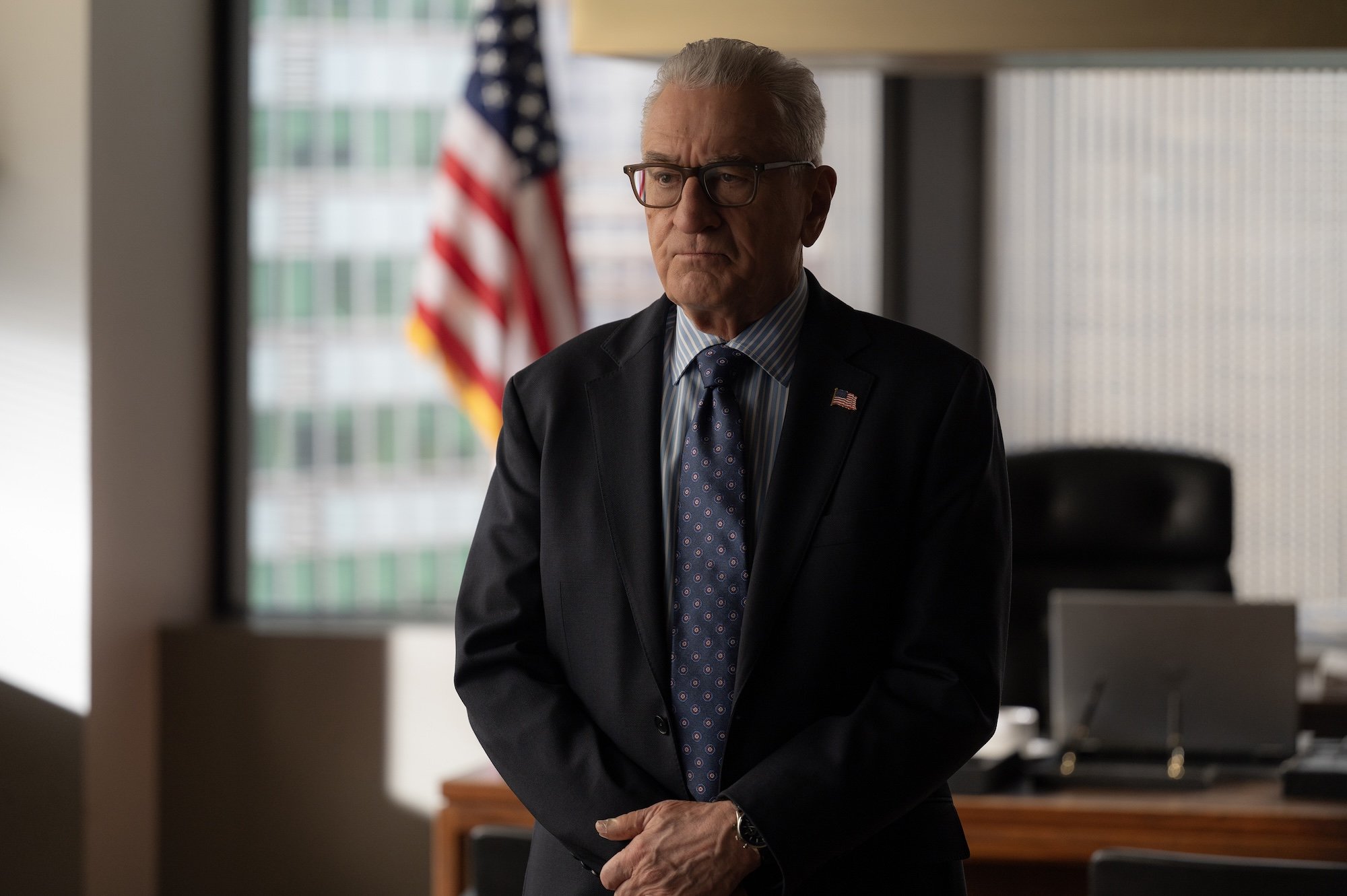TV Review:
Zero Day is a Tense Exploration of a Catastrophic Cyber Attack that Hits a Little Too Close to Home
Former US President George Mullen (Robert De Niro) is enjoying a quiet life and writing his memoir when the unthinkable happens. A devastating cyber attack kills thousands, disrupts millions more, and sets this series on a high-speed and tantalizing journey toward justice—or perhaps something more sinister. Appointed head of the Zero Day Commission, Mullen is tasked with unraveling the depth and connections of the attack, all while dealing with his own trauma and secrets, as well as navigating the designs of those around him on how to handle the future of a country shaken to its very core.
It’s hard to believe Zero Day is De Niro’s first television series, but it’s not hard to believe that he brings his incredible star power to elevate the narrative. He plays Mullen with such grace and confidence that you fully believe his place in this world. The former President’s struggle with what’s real and what is required of him is mesmerizing; the show is designed to make you feel off-kilter and uncertain of Mullen’s capabilities. The contrast between his public appearance as a charismatic and trusted leader, and the unraveling of his personal life as the investigation takes its toll, is thrilling and De Niro makes it wholly convincing.
Joining De Niro is an absolutely stellar cast. Angela Bassett is current President Evelyn Mitchell, a strong leader who can go head-to-head with Mullen in every way; their interactions are electric. Jesse Plemons shines as Roger Carlson, Mullen’s former aide-turned-fixer who sees this attack as an opportunity to regain status. Lizzy Caplan plays Alexandra Mullen, a young congresswoman determined to step outside of her father’s shadow. Caplan makes you feel every frustration Alex goes through while playing the convoluted game of politics. Joan Allen is Alex’s mother and George’s wife Sheila; as the former first lady and a nominee to the federal bench, she plays the supportive wife and mother with a delicate side of ambition—and boy, Allen sells it well.
Rounding out Mullen’s list of potential allies, Connie Britton plays his former chief of staff Valerie Whitesell, while the always-enthralling Matthew Modine steps onto the political battlefield as Richard Dreyer, the enigmatic Speaker of the House. McKinley Belcher III is Carl Otieno, a Department of Justice lawyer who doubles as the Zero Day Commission’s lead investigator, and Mark Ivanir is Natan, an intelligence operative and Mullen’s close confidant.
But we all know politics is about as friendly as a three-headed serpent, and you’ll be left hypnotized by the ever-evolving power plays spin out with the saying ‘keep your friends close and your enemies closer’ ringing in your ears. Some of these characters are in it for the greater good, but the method of achieving that is far more complex than what is morally right. Others simply see an opportunity to take advantage and make a quick buck, while the rest have even more nefarious plans—and you never can tell if they’re on anyone’s side but their own.
Bill Camp plays CIA Director Jeremy Lasch with relish; Lasch pulls as many strings as he deems most advantageous and all bets are off on whether he’s willing to help Mullen or hinder him. Dan Stevens is the smarmy political TV host Evan Green, a clear allegory for right-wing pundits who have no qualms in spewing the loudest and most vile criticisms to get the most views. Stevens plays this type so well you’ll love to hate him. But the real-life comparisons don’t stop there; Gaby Hoffmann’s Silicon Valley billionaire character Monica Kidder could be Mullen’s biggest help or biggest obstacle, depending on what’s in it for her. And Clark Gregg’s character Robert Lyndon is another billionaire corporate raider who knows all too well how money talks.
In case the characters don’t bash you over the head with similarities to the US’ current version of government, gosh, the parallels between what’s been happening in real life with a certain Nazi-saluting billionaire’s hostile system takeover will show up in every aspect of this series. The blatant attacks on democracy, the huge gaps in technological security, and the rampant misinformation and conspiracy theories are hard to watch. Not to mention the checks and balances, and the scrutiny that is used like a weapon to embolden some and silence others. The real difference is the government portrayed here actually tries to tackle the problem instead of sending thoughts and prayers (but I digress).
Zero Day is a tense demonstration of the fallout from a catastrophic event that hits a little too close to home for comfort right now. Through the lens of cyber-hacking and the media’s real-time reporting of each development, it explores how vulnerable we are and how power shapes the narrative. While the cynic in me knows this is fictional purely because I don’t believe the current system would be able to handle such an event with the efficiency or capability of this caliber, the chilling allure of this series is undeniable. Every aspect of the filmmaking is designed to draw you in; from the unsettling score and sound effects that leap out at all the right moments, to the flashes of insight into Mullen’s mental state, to the lighting and framing of each shot.
The search for the truth and justice is gritty and often feels like a losing battle, but Zero Day remains grounded in deeply personal ways thanks to the cast’s impeccable acting. As to whether the outcome is satisfying or not doesn’t matter all that much; it’s the way the players sweep across the board that will keep you locked in and ready for their next move.
“The search for the truth and justice is gritty and often feels like a losing battle, but Zero Day remains grounded in deeply personal ways thanks to the cast’s impeccable acting.”
